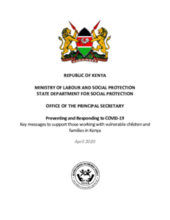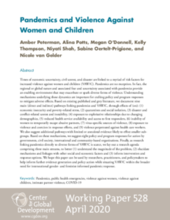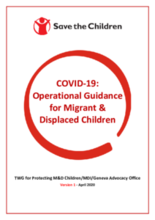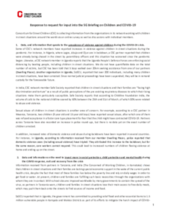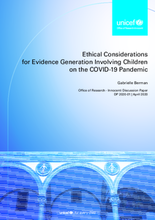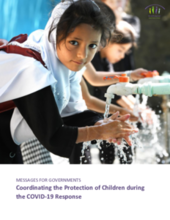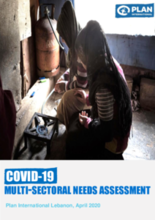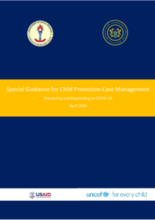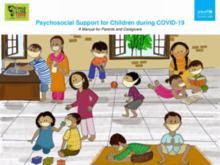This section highlights tools and resources for child protection in the COVID-19 pandemic.
Displaying 181 - 190 of 264
This guidance is designed to inform child protection actors in Kenya in light of the COVID-19 crisis. It guides actions targeting, and services provided for, vulnerable children and families, including children living in institutions, children living on the streets, children with disabilities, and others.
Based on existing published and grey literature, the authors of this paper document nine main (direct and indirect) pathways linking pandemics and violence against women and children (VAW/C). The paper is aimed to be used by researchers, practitioners, and policymakers to help inform further evidence generation and policy action while situating VAW/C within the broader need for intersectional gender- and feminist-informed pandemic response.
This document provides programme guidance across numerous migrants and displaced (M&D) children contexts.
Consortium for Street Children (CSC) is collecting information from the organisations in its network working with children in street situations around the world via an online survey as well as discussions with individual members.
This dashboard contains the latest data from UNICEF’s global databases that are relevant to the COVID-19 response for children. Explore country-level data by gender, residence and wealth quintile.
This paper identifies key ethical considerations when undertaking evidence generation involving children during the mitigation stage of the pandemic (emergency phase), on subject matter relating to COVID-19 once the pandemic has been contained, and once containment policy measures, including lockdowns, have been lifted (post-emergency phase).
The Child Protection Area of Responsibility (CP AoR) has developed a series of messages calling on governments to take actions to protect children in their COVID-19 responses.
This report presents insightful findings on the effects of the COVID-19 outbreak in Lebanon, highlighting data collected on COVID-19 knowledge, health, WASH, protection, education, food security and livelihoods, shelter, movement and digital access.
This Guideline aims to further provide technical guidance to child protection workers in Ghana to better respond to child protection risks during the COVID-19 pandemic through case management, including psychosocial support.
In the context of COVID-19, this manual focuses on psychosocial care of children and prevention of violence in spaces where children stay (child care institutions, families, temporary isolation facilities, NGO shelters, etc.)

